The English language is constantly changing and adapting to the needs of its users. While new words are created and some old words acquire new meanings, others just fade from use. Of these words we no longer use, some have been around for centuries but disappeared completely for no obvious reason, while others have been made obsolete by technological change.
24/7 Tempo used Lexico.com’s list of Archaic Words That Used To Be Common In English to compile a list of once-popular words and expressions no one uses anymore. Many date from the 16th century or before. Not only are they no longer used, but you would also have to consult a dictionary to figure out what they mean. Some of the words on our list, such as egad and zounds, are minced oaths — euphemistic versions of profane or blasphemous terms.
Nobody says fourscore for twenty, but most Americans are familiar with the word and its meaning because it is the opening line of the Gettysburg Address. Probably few people know what a scaramouche is, but most would recognize “Scaramouche, Scaramouche, will you do the Fandango?” as a line from the Queen song “Bohemian Rhapsody.”
A few are of relatively recent origin and their meanings are fairly obvious, but they are still on the retirement list. Nobody drives a horseless carriage now. Even motor car sounds old-fashioned. And what about Walkman or floppy disk? Two decades ago these were ubiquitous; now they’re more likely to be found in a museum than in your home or office.
Of course, as words have vanished in popularity, brand new words have become commonplace. Here are the 50 most popular words that entered the dictionary in the last decade.

1. Mooncalf
> When this word was first in use: 17th century
A mooncalf is a foolish or absentminded person. While no one uses this word anymore, it has made a reappearance in popular culture. Harry Potter fans will know that a mooncalf is a shy magical creature that only comes out of its burrow when there’s a full moon.

2. Yclept
> When this word was first in use: Old English
Yclept, or “by the name of,” is an Old English word meaning it’s really, really old. It’s also one of the small number of English words that have ‘y’ as a vowel at the beginning.

3. Egad
> When this word was first in use: 17th century
Egad was once used to express surprise or anger. It is believed to derive from Oh God. Some of the words on our list are minced oaths — euphemistic versions of profane or blasphemous terms.

4. Scaramouche
> When this word was first in use: 17th century
The scaramouche — a boastful but cowardly person — was a stock character in Italian comedy three centuries ago. Scaramouche was famously reintroduced into popular culture, if not everyday use, when it featured in the lyrics of Queen’s song “Bohemian Rhapsody.”

5. Avaunt
> When this word was first in use: 15th century
Avaunt is a Middle English word meaning go away — and it has gone away. It dates back to the 15th century. It derives from Latin by way of Anglo-French, and means forward or before.

6. Gadzooks
> When this word was first in use: 17th century
Gadzooks, an expression of surprise or annoyance and a mild oath, possibly derives from God’s hooks, the nails of the Crucifixion.

7. Walkman
> When this word was first in use: 20th century
The Sony Walkman, a portable cassette player, debuted in 1979 and was in production for 30 years. Once everybody seemed to have a Walkman, now nobody does. The cassette is also history — it gave way to the CD, which gave way to the digital download.
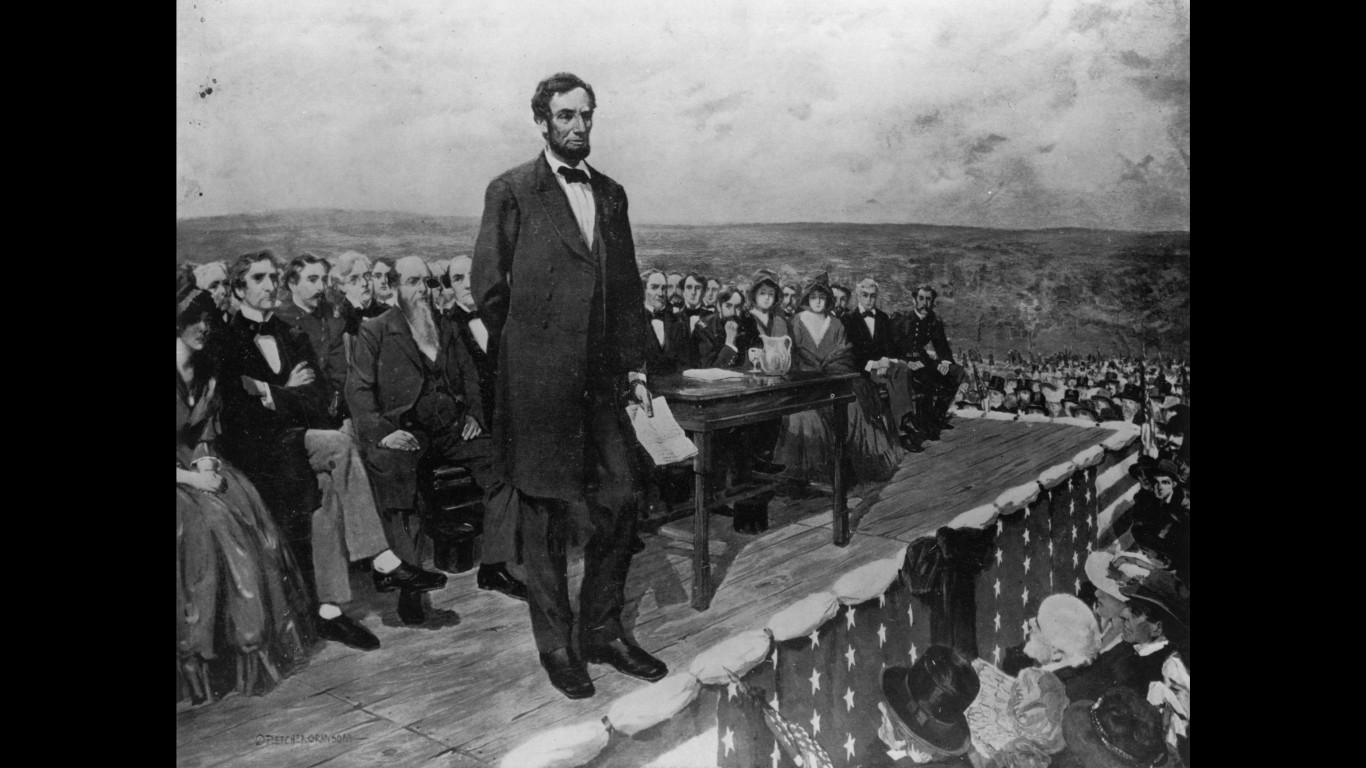
8. Fourscore
> When this word was first in use: 13th century
A score is twenty and fourscore means four times twenty, or eighty. The term dates back to the 13th century. While it’s no longer used in everyday speech, it’s embedded in the American psyche as the first word of President Abraham Lincoln’s Gettysburg Address: “Fourscore and seven years agoâ¦.”
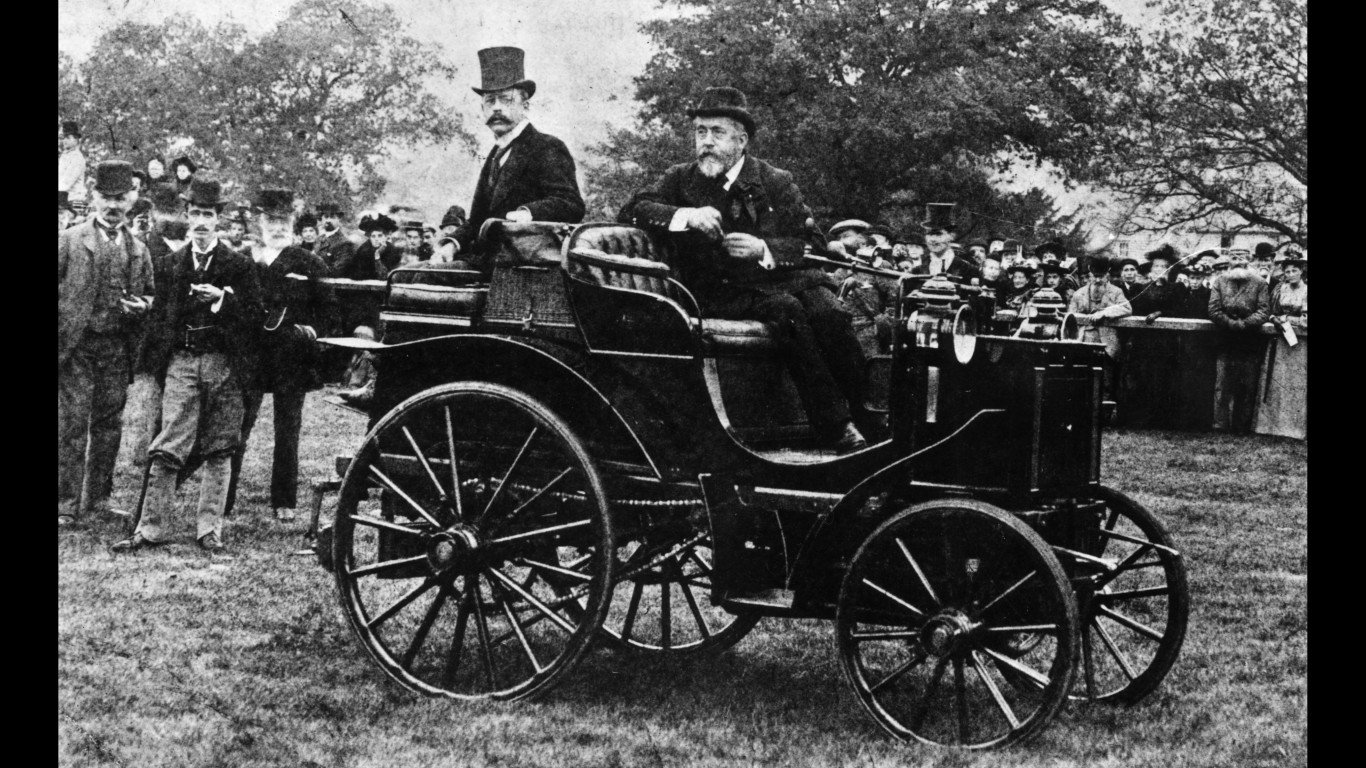
9. Horseless carriage
> When this word was first in use: 19th century
Horseless carriage was an early name for the automobile and dates back to the end of the 19th century. Prior to that, horses were commonly used to pull carriages. Now, nobody says horseless carriage. Even motor car sounds dated.

10. Zounds
> When this word was first in use: 17th century
Zounds is an expression of surprise or indignation and dates back to the 1600s. It’s another minced oath — an abbreviation of God’s wounds.

11. Bumper
> When this word was first in use: 17th century
Bumper has a number of meanings, including a generous glass of an alcoholic drink. It dates back to the 1600s and was included in Samuel Johnson’s dictionary in 1755. Nobody calls a full glass a bumper now, but they might have a bumper crop.
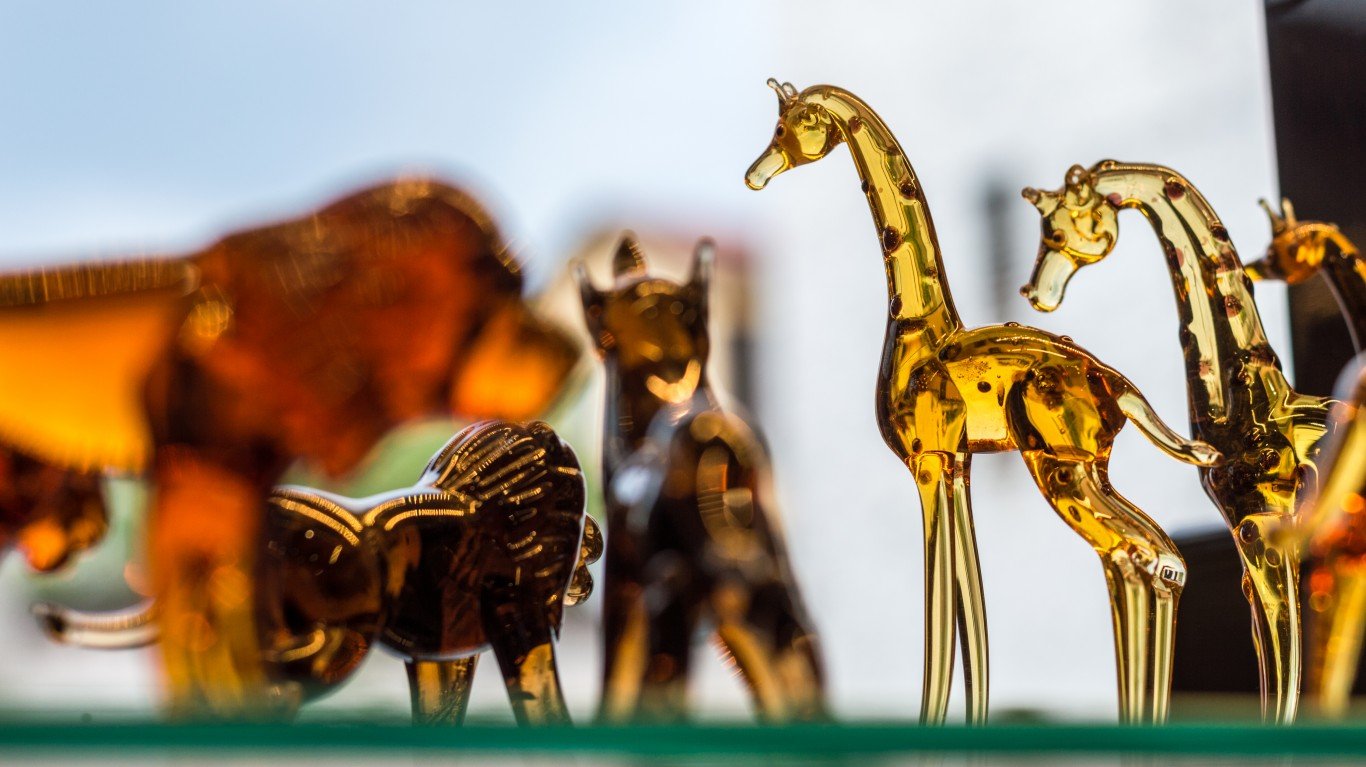
12. Fandangle
> When this word was first in use: 19th century
Fandangle, a useless or purely ornamental thing, dates back to 1835 and is thought to have originated in the southern United States. It may derive from fandango, the Spanish dance (which also features in the lyrics of Queen’s “Bohemian Rhapsody”).

13. Ye
> When this word was first in use: pre-12th century
Ye is an Old English word for you plural. While it sounds archaic to American ears it is still used in parts of Britain and Ireland.
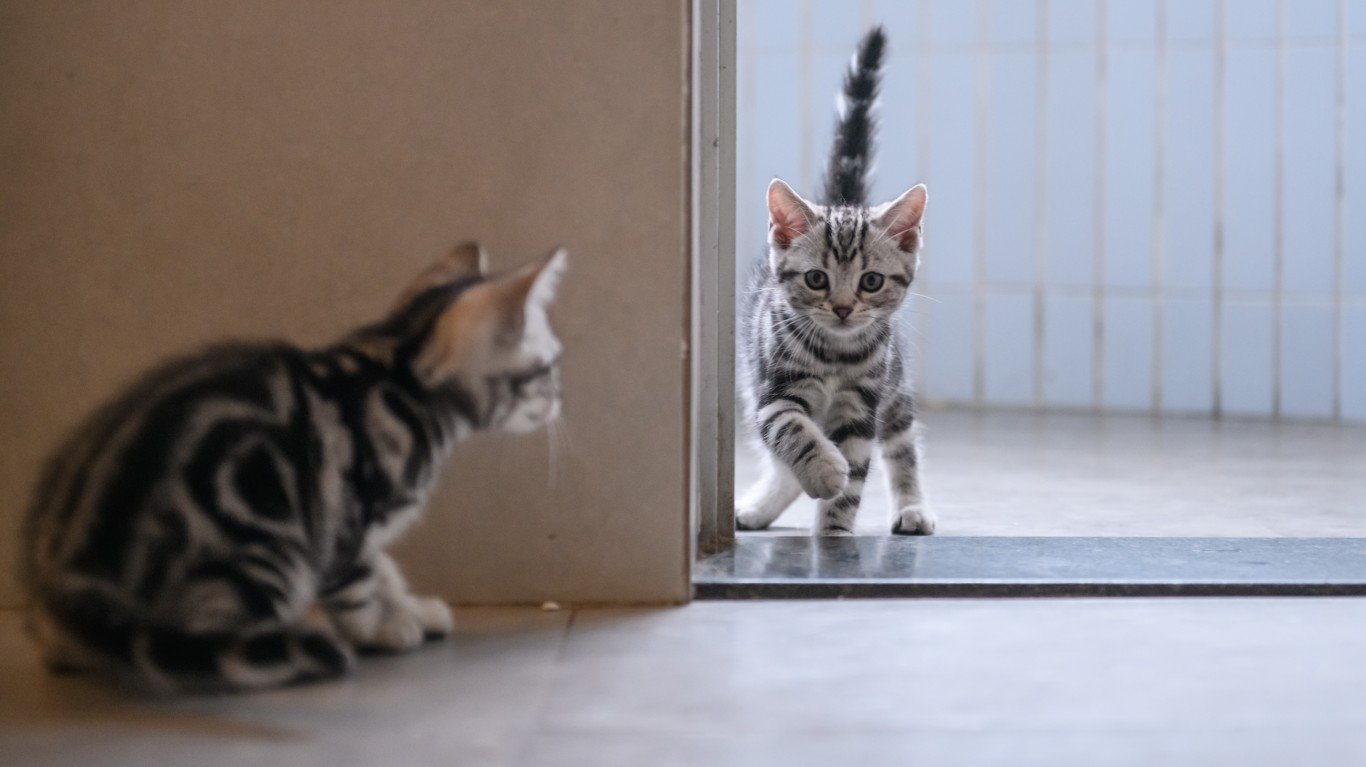
14. Ambuscade
> When this word was first in use: 16th century
Ambuscade, meaning ambush, derives from Old Italian by way of Middle French. It originally meant forest, a good place for an ambush.

15. Baseborn
> When this word was first in use: 16th century
Baseborn, meaning of low birth or social standing, dates back to the 16th century. It’s probably a good thing that it’s no longer used as it reflects class-consciousness and the stigmatization of illegitimacy that are no longer acceptable.
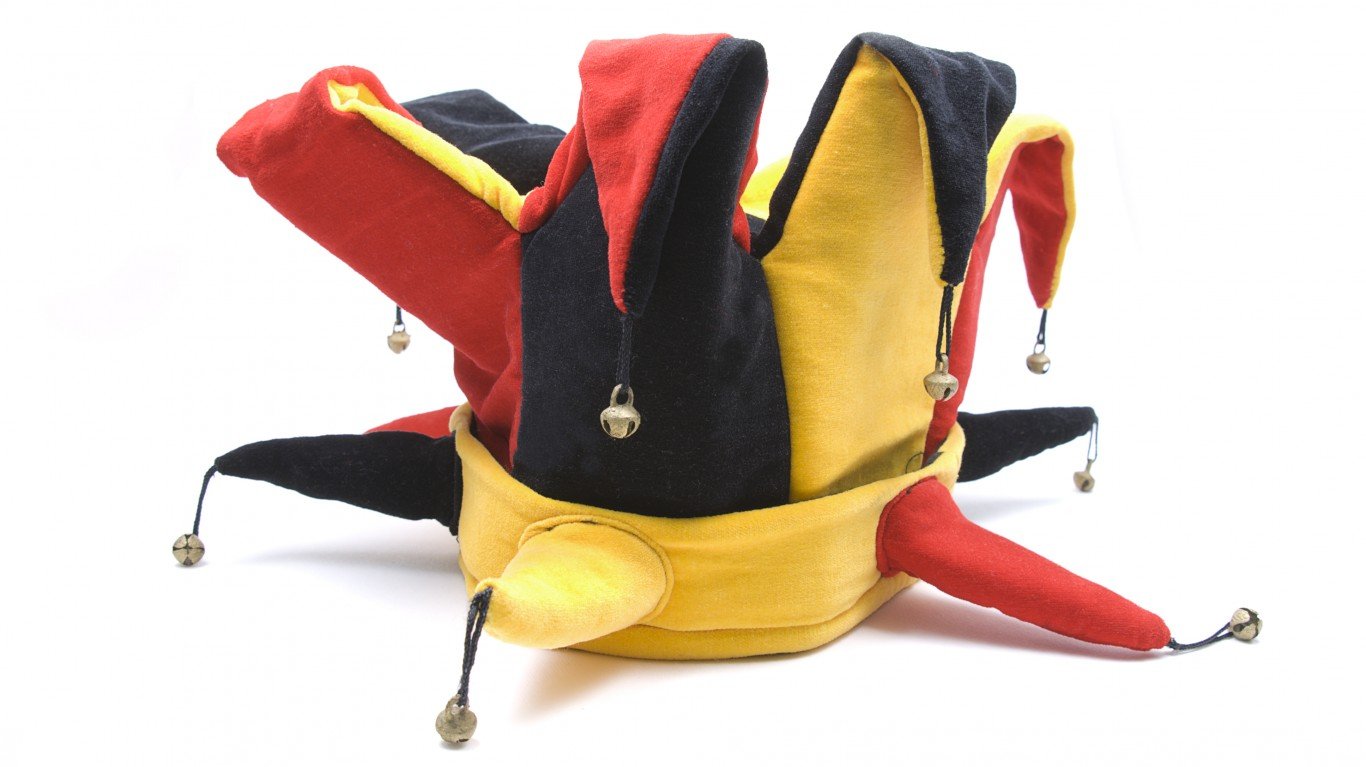
16. Coxcomb
> When this word was first in use: 16th century
Coxcomb started out as cock’s comb, or cockscomb. It was the traditional cap worn by a jester — a professional fool — and resembled a rooster. In the 16th century, it came to mean a vain and conceited man, or dandy.
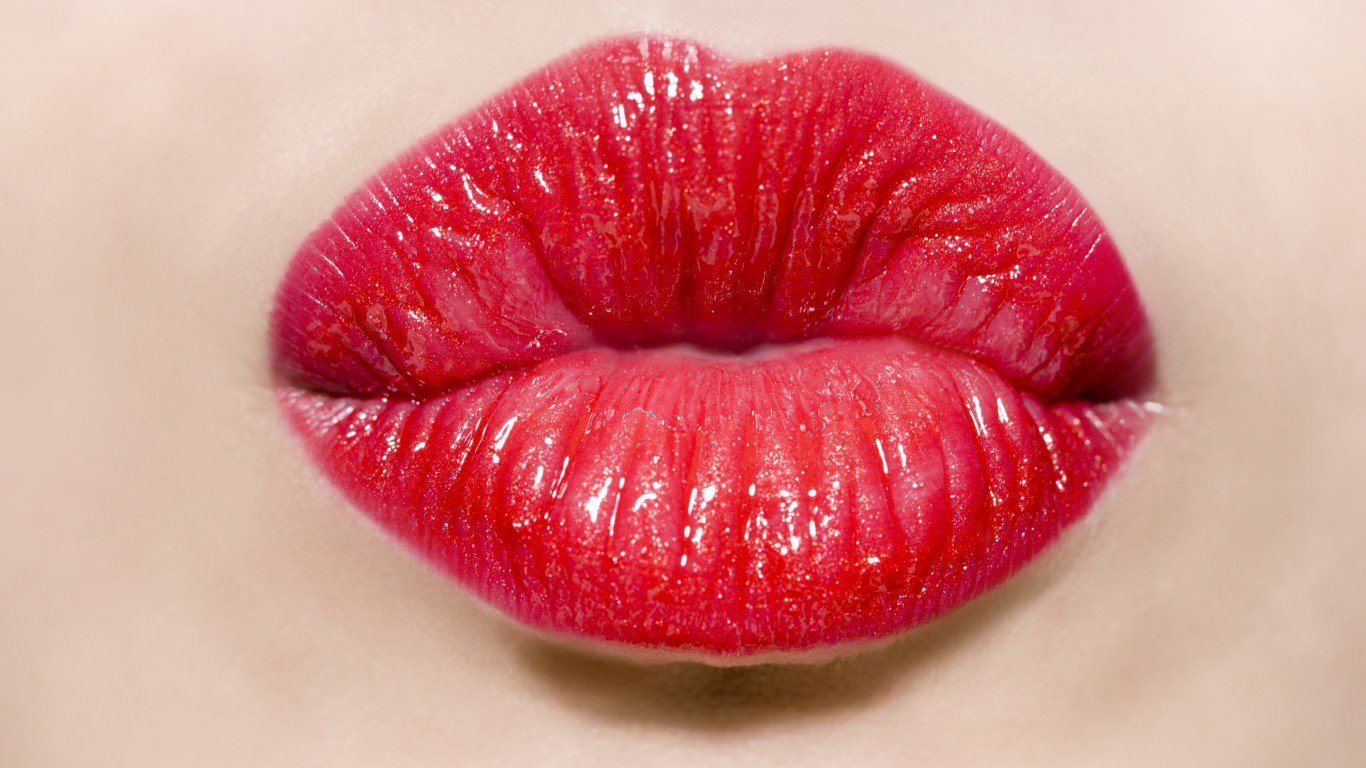
17. Buss
> When this word was first in use: 16th century
Buss, a kiss, is another 16th century word that is no longer in use. It is akin to the French noun baiser and the German Kuss.
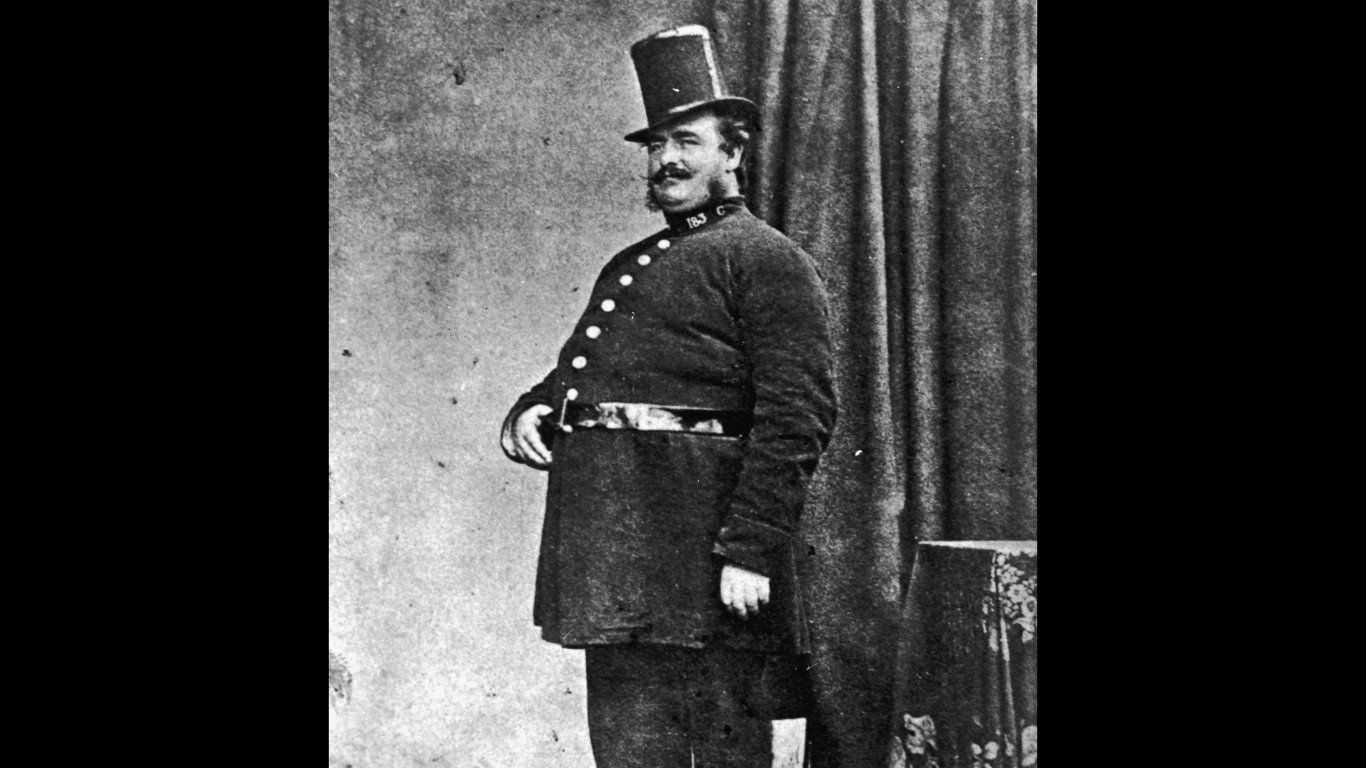
18. Peeler
> When this word was first in use: 19th century
Police officers in Britain were once commonly referred to as Peelers. The term derived from Sir Robert Peel (1788 â1850), who established London’s Metropolitan Police Force. The term Bobbies, which was also inspired by Sir Robert, is still in use.
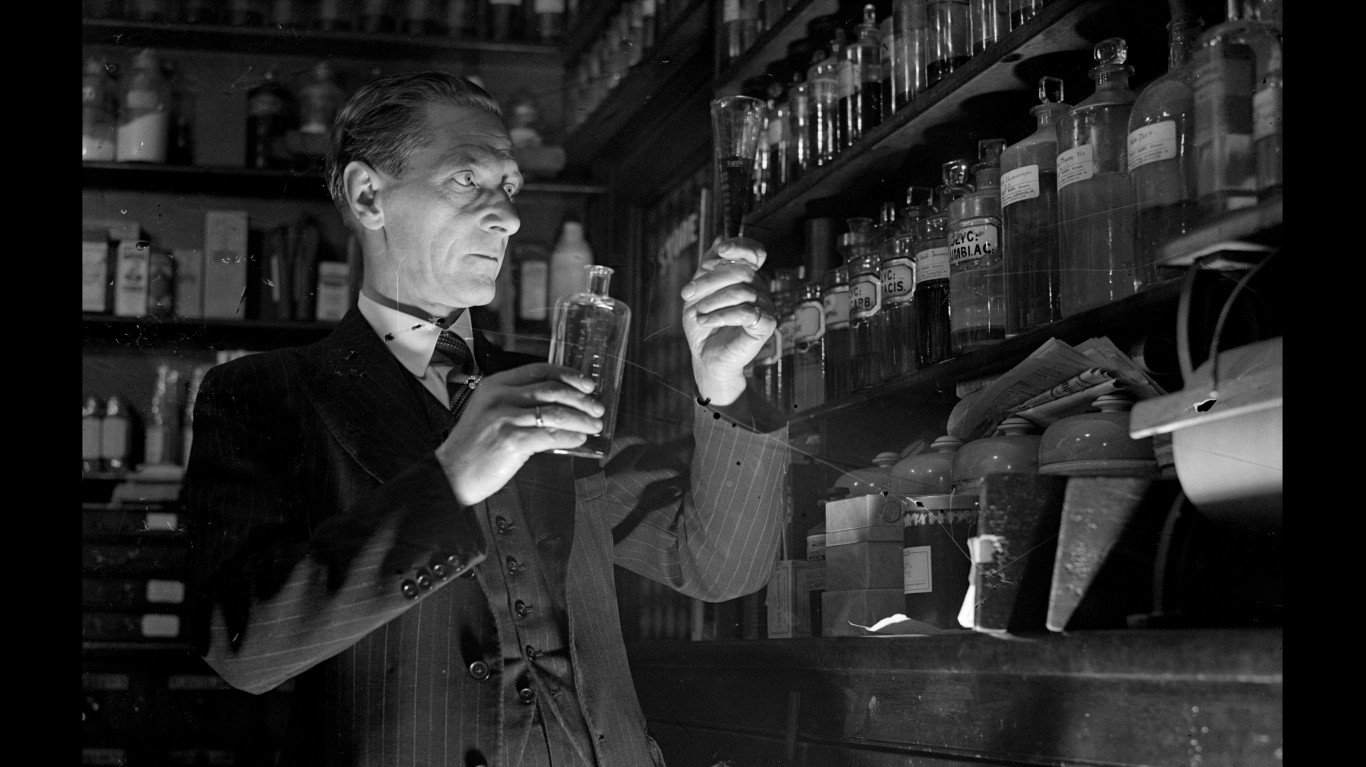
19. Apothecary
> When this word was first in use: 14th century
The word apothecary, meaning a person who prepares and sells medicine, derived from the Latin word apotheca, or storehouse. Two words with similar origins are still in use — bodega and boutique.

20. Camelopard
> When this word was first in use: 14th century
Camelopard, or giraffe, dates back to the 14th century. While it has Greek and Latin roots and is totally archaic, it’s easy enough to see its origin — it combines the words for camel and leopard.

21. Floppy Disk
> When this word was first in use: 20th century
Floppy disks were widely used for data storage from the mid-1970s up to the beginning of the 21st century. We no longer use them for anything and so we no longer use the term.
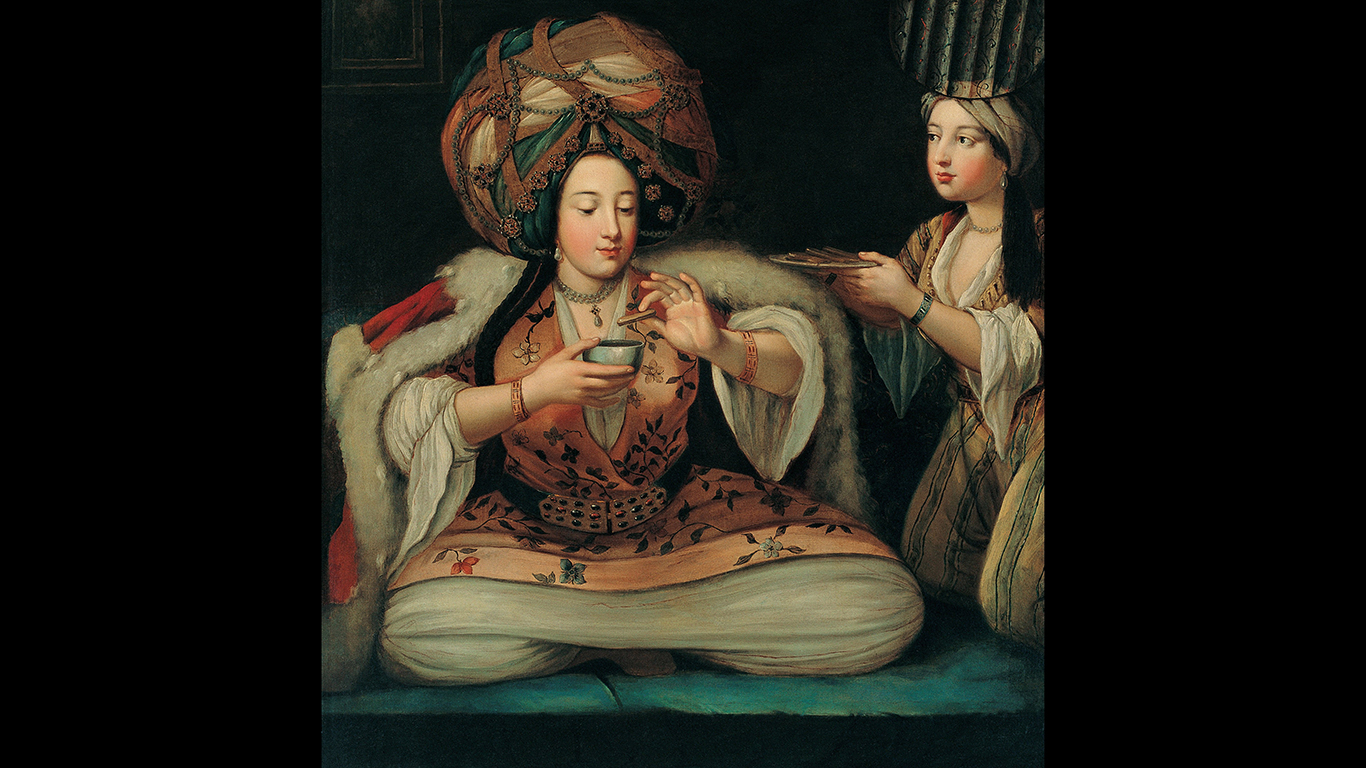
22. Handmaid
> When this word was first in use: 14th century
Handmaid, meaning a female servant, dates back to the 1300s. Now, very few people have servants, and nobody has handmaids. However, the term reentered popular culture because of the success of Margaret Atwood’s novel “The Handmaid’s Tale” and its television series adaptation.

23. Forsooth
> When this word was first in use: pre-12th century
Forsooth, meaning indeed, has Old English roots and was used before the 12th century. While it is archaic, it is still sometimes used ironically.

24. Rapscallion
> When this word was first in use: 17th century
Rapscallion, a mischievous person, derives from the word rascal and was in use from the 17th century. It began as rascallion and somebody added the “p” to make the meaning even worse.

25. Bibliopole
> When this word was first in use: 16th century
The first use of bibliopole for a dealer in books was in the 16th century. It has Greek roots and combines the words for book and sell. We no longer have bibliopoles, but we certainly have bibliophiles.
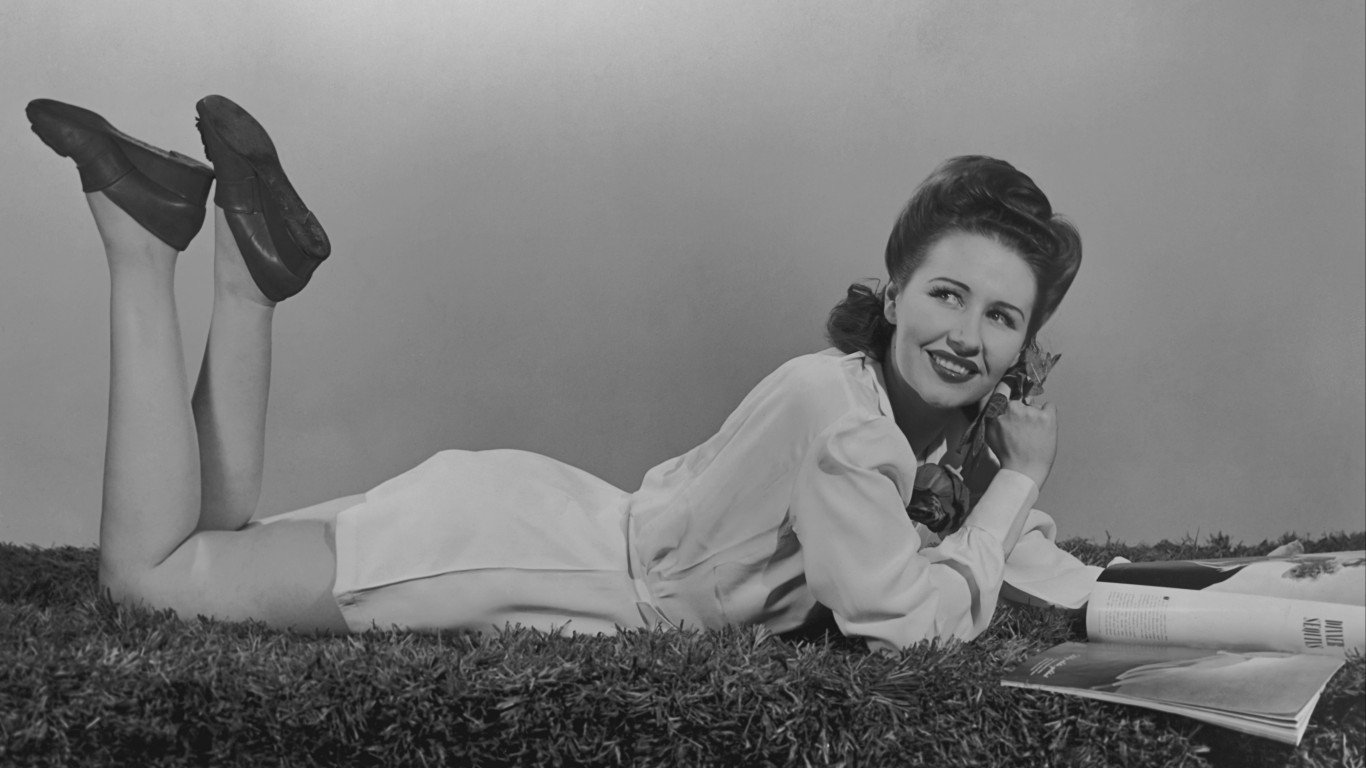
26. Dame
> When this word was first in use: 14th century
Dame has Latin and French roots and came to mean an elderly or mature woman in the 14th century. It came to be a slang term for any woman in America in the early 20th century. Its popularity was reflected in the 1949 Richard Rodgers song, “There is Nothin’ Like a Dame,” but it has been out of favor for a long time.
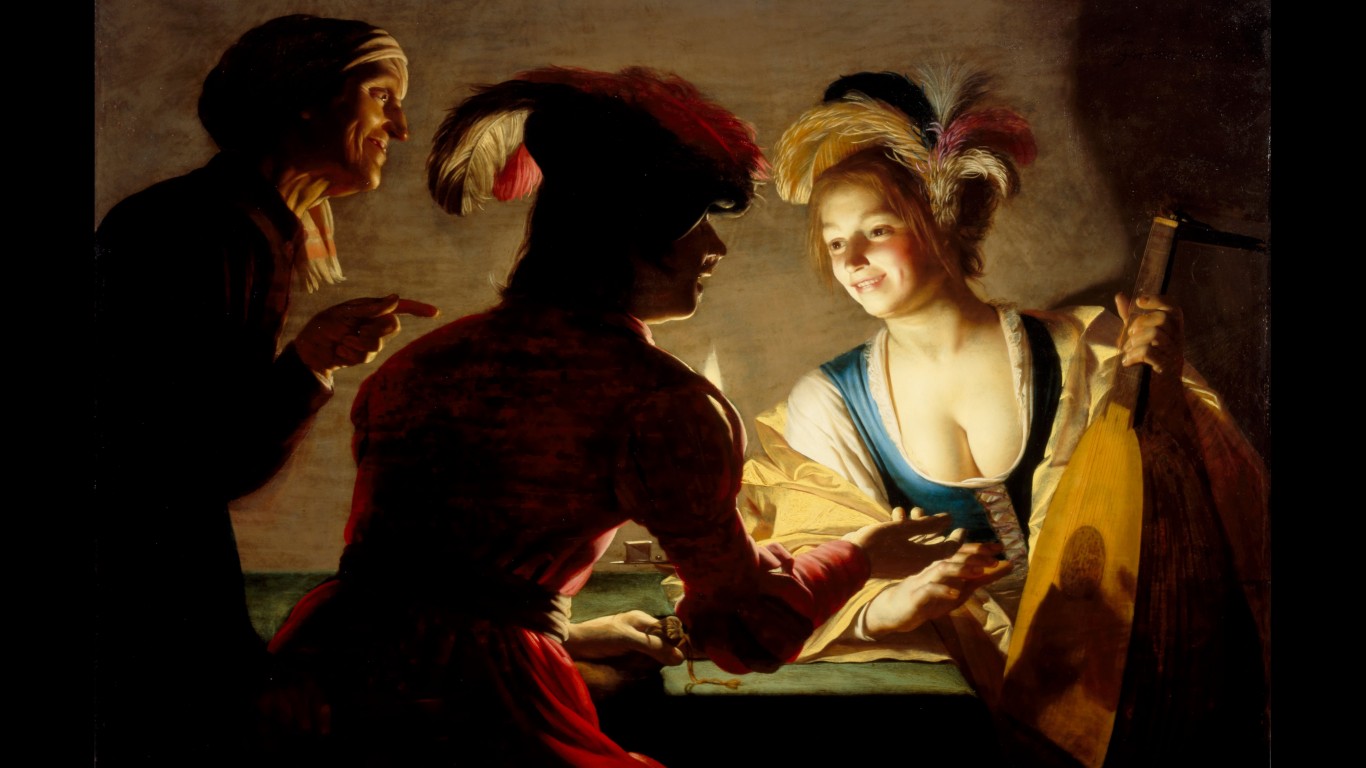
27. Strumpet
> When this word was first in use: 14th century
The Middle English word strumpet, a female prostitute or a promiscuous woman, appeared in the 14th century. It’s archaic but made a reappearance in James Plunkett’s 1969 novel “Strumpet City,” about Dublin in the early 20th century.

28. Aliment
> When this word was first in use: 15th century
Aliment, meaning food or nourishment, dates from the 15th century and comes from the Latin alere, meaning to nourish. Nobody says aliment anymore, but everybody has an alimentary canal, the tube in the body through which food passes.

29. Circumjacent
> When this word was first in use: 15th century
Circumjacent, meaning surrounding, originated in the 15th century and combines the Latin words for around and to lie. We still use words with these components, such as circumnavigate (to travel around) and adjacent (next to).

30. Jakes
> When this word was first in use: 16th century
The use of jakes for an outdoor toilet dates back at least to the 16th century. There doesn’t seem to be agreement about the origin — some suggest it derives from the French name Jacques. The cognate jacks is still used in Ireland.

31. Cutpurse
> When this word was first in use: 14th century
The meaning and derivation of cutpurse should be clear to most people, even if it is no longer used regularly. A cutpurse is a pickpocket, and the word was used since the 14th century, when people would carry their purses held by a strap or string.

32. Intelligencer
> When this word was first in use: 16th century
The use of intelligencer to describe a person who gathers intelligence dates back to the 1580s. It also appeared as the name of a newspaper in the following century. While the former meaning is archaic, there are still Intelligencers being published in various parts of the United States and Canada.
